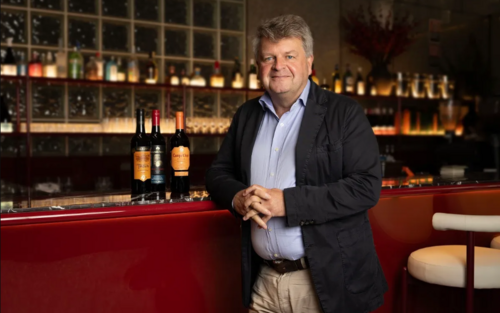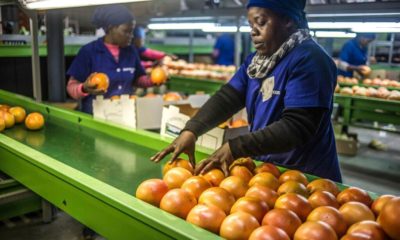Business
Global Giant Vinarchy Acquires South Africa’s Flagstone and Kumala Wines in R18-Billion Wine Empire Expansion

Vinarchy, a new R18-billion wine conglomerate, has announced the acquisition of two major South African wine brands – Flagstone and Kumala – cementing the country’s place in the group’s international portfolio.
Vinarchy may sound like something from a thriller script, but the newly formed global wine powerhouse has serious ambitions. A merger between Accolade Wines and Pernod Ricard’s wine operations in Australia, New Zealand, and Spain, the company now oversees 11 wineries across four continents and more than 1,600 employees.
The acquisition of Flagstone and Kumala, two of South Africa’s most recognisable wine exports, brings the Cape Winelands directly into Vinarchy’s global network. The move is part of a wider trend of international investment in South African terroir.
“This is likely driven by the comparative value South African wines offer, their growing international recognition, and the underlying asset appeal of land and heritage brands in the Cape,” said Dr Mesias Alfeus, co-creator of the South African Fine Wine Index at Stellenbosch University.
Global Capital Meets Local Character
While global takeovers can raise eyebrows, experts see this acquisition as a potentially positive development.
“Foreign capital can bring much-needed infrastructure, global market access, and technical expertise,” noted Alfeus. “But there are valid concerns about the loss of local identity or profits not being reinvested.”
Dr Erna Blancquaert, a Stellenbosch-based viticulture expert, believes the trade-off may be worth it.
“Big wine companies have the muscle to get products on shelves worldwide. This kind of access is game-changing for local producers.”
Why SA Wine?
South Africa offers unique advantages to global wine investors. With its rich wine heritage, ideal growing climate, and lower labour costs, the country presents a compelling case for both economic and quality-driven reasons.
“Labour accounts for up to 60% of a vineyard’s operating costs,” said Blancquaert. “South Africa has both the workforce and some of the oldest soils on Earth, making it appealing for long-term investment.”
Keeping Identity in the Bottle
Vinarchy insists its goal isn’t to homogenise but to enhance.
“Our brands will keep their unique identities,” said Ben Clarke, Vinarchy’s executive chairperson. “Flagstone, for instance, will remain rooted in its heritage — its winery was once a De Beers dynamite factory.”
Clarke said South African wine is in high demand, especially in the UK and Europe. Vinarchy aims to scale up operations while respecting each brand’s distinct character.
The Bigger Picture: From Bargain to Boutique
Vinarchy’s global portfolio stretches from affordable favourites to premium fine wines. This mirrors a shift in South Africa’s wine scene, where more producers are focusing on quality over quantity.
“There’s a move toward premiumisation,” said Alfeus. “Smaller volumes, higher quality, and an eye on international recognition and wine as an investable asset.”
Still, the success of this new model will depend on how sustainably it is executed , and whether the local communities that grow the grapes benefit in the long run.
Repeated requests for comment from Flagstone and Accolade Wines went unanswered at the time of publication.
{Source: Daily Maverick
Follow Joburg ETC on Facebook, Twitter , TikTok and Instagram
For more News in Johannesburg, visit joburgetc.com



























